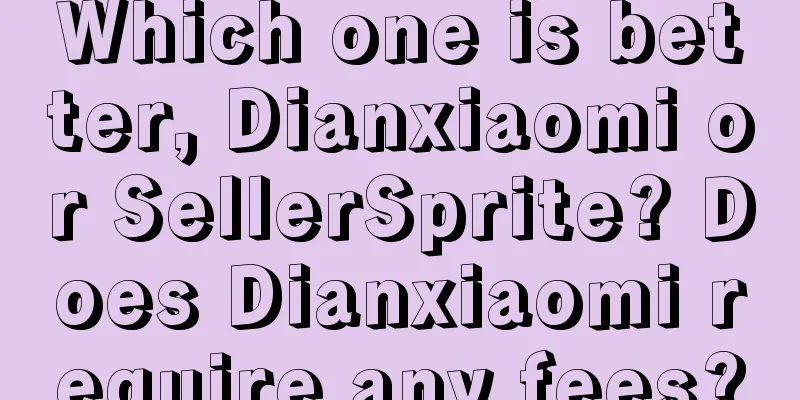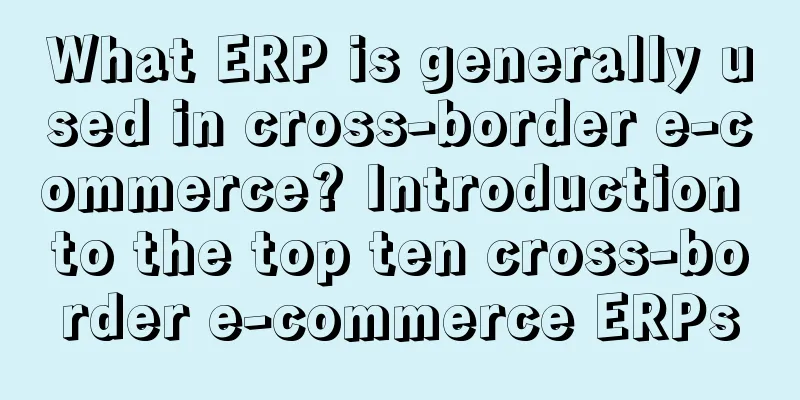Consensus no longer exists, Double 11 enters a new era of “division”|Morketing Double 11 observation②

Since the birth of Double 11, no matter how the times change, from the earliest big promotions and discounts to the increasingly complex gameplay and later live e-commerce, the Double 11 promotions of various platforms have almost the same formula. Each platform always competes with the same goal. Or to put it more bluntly, every year's big promotion, whether it is Tmall, JD.com, Douyin, Kuaishou, Pinduoduo, whether it is traditional shelf e-commerce or emerging live broadcast e-commerce, even if there are differences in business formats, at the time of each big promotion, everyone has almost the same consensus on the promotion point, and together promotes brand merchants to move in, and then to differentiated operations of platform merchants, and further develops to live broadcast e-commerce and Double 11 parties. By last year's Double 11, this situation became even clearer, and almost all platforms were focusing on the five words "lowest price on the entire network". Taobao directly launched a series of games aimed at low prices, such as "Everyday Low Prices", and directly added labels and highlighted Tmall products with the lowest real-time price comparisons on the entire network; on the other hand, JD.com also directly shouted the slogan of "really cheap", and Douyin and Kuaishou even launched various activities to cut prices by 15%. This pursuit of the lowest price on the entire network even affected this year's 618, but just 5 months later, major platforms almost stopped mentioning the lowest price on the entire network. Taobao's slogan became "quality and good price", JD.com changed from "really cheap" to "cheap and good", and Kuaishou emphasized traffic support and provided merchants with 20 billion traffic subsidies. Although the two gameplays of "one piece direct reduction" and "official instant reduction" launched by Douyin are strongly related to price, it also proposes to make "good content" the core of the platform's growth. In the end, the only consensus among all the companies on Double 11 may be that the opening time will be earlier and earlier. For consumers, this may also be the first time that they can receive promotional information about Double 11 pushed by various platforms on their mobile phones shortly after returning from the National Day holiday. 1. Collectively give up the lowest priceIn fact, in the past many years, whether it is Double 11 or 618, various promotional festivals on e-commerce platforms are almost a standard reflection of the development trend of the e-commerce industry. As mentioned above, in every big promotion period in the past, we can easily find a keyword, which can almost be said to be the annual keyword of the e-commerce industry. Or to put it more directly, the competition among e-commerce platforms is already quite fierce, which means that any model innovation, once verified, will naturally be quickly copied by competitors, from early branding upgrades and consumption upgrades to later platform merchants and live-streaming e-commerce, and even more detailed, iconic tactical changes such as white-clothing subsidies and refunds only. Just like last year, the keywords of the e-commerce industry were almost all about low prices. The lowest price on the entire network was the core of the competition among various platforms. Whether in terms of publicity, actual actions or various details, the behavior of various platforms was almost all about these five words. But this year, it is almost difficult for us to find a word to highly summarize and conclude this year's Double 11. On the one hand, although various platforms are still competing on price, this is obviously not the absolute protagonist this year. Although various e-commerce platforms still offer a series of preferential subsidies, almost no platform directly and publicly claims to have the lowest price on the entire network. On the other hand, if we say that the main theme of this year is to get merchants back to Double 11, this is not quite accurate. Although the promotional focus of each platform is almost all around enhancing consumer experience and improving merchant participation, if you look at the specific details, you will find that in the marketing of each platform, price, service, delivery and even content all have their own emphasis, and there is almost no completely overlapping keyword display. Furthermore, even on some details, the gameplay of each platform is completely different. For example, the pre-sale system that was collectively abandoned by various platforms during the 618 shopping festival this year was picked up again by Taobao Tmall and Kuaishou less than 5 months later, but JD.com and Douyin still insisted on no pre-sale system. Obviously, e-commerce platforms seem to have realized that instead of competing with other competitors and continuing the costly imitation show, the final result is likely to be the same as last year when everyone was pursuing the ultimate ROI and white-label products were in vogue. Just as He Yabin, Chief Growth Officer of McDonald's China, said in an interview with Morketing, "Involution is a manifestation of lack of systematic thinking. It is a stubborn pursuit of growth in a local area with extremely low efficiency. Impetuousness is reflected in the fact that companies believe that there is no limit to growth and that growth without profit can continue... The end of the ultimate ROI is white-label products." As this situation becomes more and more common, it will only further dampen the enthusiasm of brands and merchants to participate in big promotions, especially with the rise of live streaming e-commerce in the past few years. Just as many brands proposed a similar strategic shift in an interview with Morketing, that is, "making big promotions a daily routine", e-commerce platforms may also realize that if they continue with the past close-fitting strategy and continue to roll back their own momentum, no matter which e-commerce platform ultimately wins, big promotion IPs such as Double 11 will only lose their value in the end. From another perspective, this year's e-commerce platforms still have a keyword that cannot be considered a keyword - getting a head start. 2. “Running fast” under anxietyIn fact, this is why it is difficult for us to create a win-win situation with merchants, even though all platforms have introduced various policies that are beneficial to merchants. This is the key word for Double 11 this year. Although it can be said that major platforms are gradually relieving pressure on merchants from various traffic support and subsidies, as well as the relaxation of the refund system that still opposes merchants, it is undeniable that they are still under pressure. At present, the consumption atmosphere is dull, and the increase in mobile Internet has peaked, making it difficult to boost retail. Even for online retail, the cost of acquiring traffic is getting higher and higher during the promotion period. In addition, Star Map data shows that the total sales of 618 in 2024 was 742.8 billion yuan, a year-on-year decline of nearly 7%. This means that the 618 in the first half of this year can be regarded as a failure. This forces each platform to place high hopes on Double 11 at the end of the year. Therefore, as the carnival atmosphere brought by Double 11 has gradually declined in recent years, Double 11, which starts earlier and earlier and has a longer and longer battle line, has become the inevitable choice for each platform. In general, Douyin was ahead of the game, starting the Double 11 carnival on October 8 and even releasing a brand battle report on the same day, 12 days earlier than last year. It added a ten-day advance period, cancelled deposit pre-sales, and added a one-piece direct discount gameplay; Tmall and Taobao's Double 11 media communication meeting will start on October 12, and pre-sales will start on October 14, 10 days earlier than last year; JD.com's Double 11 event started on October 12, 11 days earlier than last year. The event is divided into five stages, including pre-sale, opening, special period, climax period and return period; Pinduoduo’s Double 11 event starts on October 14 and lasts until November 11; Kuaishou's Double 11 event started warming up on October 16, entering the first-come-first-served stage; Although Xiaohongshu does not have “Double 11”, its “once a year shopping spree” also starts on October 12. Going further, Taobao even started distributing coupons in the live broadcast rooms of major anchors in September this year. There is a prompt prominently displayed on the live broadcast interface: "Deposit red envelopes can be received 30 times a day, up to 100 yuan each time." This means that consumers need to wait in the live broadcast room for a long time to grab red envelopes in order to get lower prices. Even without talking about the impact of the ever-lengthening battle line on consumers, from the perspective of merchants alone, according to a complaint from a store on Xiaohongshu, the lengthening battle line means a dilemma for small and medium-sized merchants. Signing up to participate means that you will have to bear the extra shipping costs of 50 yuan off for orders over 300 yuan for a month, as well as various possible returns, which will result in almost no profit. But if you don't participate, it means that during the promotion period, as traffic completely tilts towards those participating merchants, there may be no orders for the whole month. Interestingly, although all companies are moving up the time of the promotion, more and more platforms are participating, in addition to e-commerce giants such as Taobao, JD.com, and Pinduoduo, content communities such as Douyin, Kuaishou, Bilibili, and Xiaohongshu are also present. However, it is completely different from the situation where consensus has broken down and strategies and tactics have completely parted ways. The atmosphere of the Double 11 this year is not tense, but rather has a lot of cooperative colors. 3. Split consciousness and behavioral cooperation: the era of competition and cooperation among e-commerce platformsOne of the most eye-catching cooperations is the early handshake between Alibaba and Tencent. On September 27 this year, Taobao took the lead in making relevant changes, switching from only being able to use Alipay for payment to also supporting WeChat payment. Then, on October 10 after the National Day, WeChat App opened the internal link of Taobao, allowing users to directly click on the Taobao link in WeChat to complete orders and payments, without even having to jump back to the Taobao App, and even directly access the Taobao homepage through WeChat. On the eve of Double 11, Alibaba also broke the ice with its e-commerce competitor JD.com. Recently, there was news that the two sides have reached an agreement on cooperation in logistics and payment. Taobao Tmall will soon be connected to JD Logistics, which is expected to be launched in mid-October. After that, Taobao merchants can choose JD Logistics as the delivery method in the system. At the same time, JD.com will also be connected to Cainiao Express and Cainiao Post Station. In terms of payment, JD.com will also be connected to Alipay, which is expected to be launched before Double 11. Of course, this does not mean that the platforms have completely reached a consensus. In terms of specific tactical execution, competition between the platforms still exists. For example, on the evening of October 14, JD.com's instant retail business JD Supermarket publicly challenged Taobao's top seller Li Jiaqi, saying that during the Double 11 period, the live broadcast room would offer a 10% discount on the previous price. Douyin anchor Li Jiaqi also announced that he would distribute 500 million red envelopes on October 14 and 15. Simba, who was previously banned by Kuaishou, was also unblocked and will resume live broadcasting on October 19. However, the reason for this competition may be that for each platform, e-commerce live streaming is no longer a core strategy as before. Instead, it is a vanguard that attracts attention and traffic to the platform as different anchors are caught up in disputes and turmoil. After all, this year, only Taobao issued coupons in the live broadcast room in advance during Double 11. In contrast, even new ecosystems such as Douyin and Xiaohongshu still focus their operations and subsidies on the traditional shelf e-commerce field. Even Taobao, which has reduced the issuance of coupons during live broadcasts, said at the Double 11 press conference that neither users nor merchants are overly pursuing online celebrity anchors to bring goods. "This year we found that the cooperation between merchants and online celebrity anchors is slowly cooling down." He even went further and said that although cooperation with top anchors can increase merchants' business in the short term, it does not help much in terms of user retention and long-term business growth. Therefore, from a general perspective, for today’s e-commerce track, if we must find a keyword that can summarize the various strategies and tactics of each platform, it is likely to re-stimulate the enthusiasm of merchants and consumers for big promotion IPs. For consumers, the big promotions that have been changing for so many years have made them "aesthetically fatigued" by the scene. In the past six months to one or two years, the emergence of a large number of new media has led to an increase in consumers' impulsive shopping behavior. When consumers see a product they are interested in, they tend to buy and use it immediately. However, over time, when consumers have experienced a large number of products or have become familiar with a large amount of content, their consumption trends begin to become rational. This trend is reflected in consumers' attitudes towards promotions. They gradually become calmer and have higher requirements for content that may inspire temporary purchases. This has changed the views of merchants and brands on big promotions. As consumption trends shift more towards daily sales, brands and merchants will inevitably turn back to consumer needs and try their best to meet consumer needs, rather than just targeting a few big promotions. Not to mention, in the past decade of big promotion history, the platform has changed year after year, and the new gameplay and rules have been introduced every year, which has greatly coerced merchants. This means that although there are various subsidies every year, the cost of participation for merchants is still increasing day by day, and the returns are becoming increasingly scarce under the internal circulation. The combination of these two naturally greatly reduces the motivation of merchants to participate in big promotions. Of course, this kind of internal circulation not only traps merchants and consumers, but also the platforms. No matter which platform consumers shop on, the goods they can buy, the prices they enjoy, and the services they can enjoy are similar. In addition, Double 11 is not necessarily cheaper than 618 and other big promotions, which further erodes the sense of ritual and uniqueness of the big promotion IP. In general, although the platforms are still highly similar this year, and the increasingly long battle lines are indeed eliminating the "festive feeling" brought by the big promotions and bringing more pressure to merchants. But it is undeniable that each platform is also trying to combine its own strengths and come up with new tricks around supply and demand. This year's Double 11 may still be difficult to restore in terms of volume, but at least it has planted the seeds of future-oriented changes, which will eventually allow us to see a completely different Double 11 in the future, or see various big promotions gradually disappear from the stage of history. In the past, all major e-commerce platforms had the common goal of "the lowest price on the entire network", but this year, they began to seek new strategies and differentiated competition. Taobao emphasizes "good quality and good price", JD pursues "cheap and good", while Kuaishou and Douyin pay more attention to traffic support and content innovation. This article will take you to understand the new trends of Double 11, explore how e-commerce platforms find new growth points amid anxiety and changes, and what these changes mean to merchants and consumers. By Innocent Roland The title image is from Unsplash, based on the CC0 protocol. |
<<: Meituan Instant Retail Conference revealed several key data sets
>>: Taobao's strategy for this year's Double Eleven has completely changed
Recommend
The business department is making things difficult again. What should the data analysts do?
This article will explore in depth the strategies ...
How to optimize Shopee products? What are the techniques?
In fact, everyone is familiar with Shopee. There a...
How do individuals carry out the cross-border e-commerce process? How do I enter Tiktok cross-border e-commerce?
To successfully enter this field and build a susta...
How to create a Facebook store? How to apply?
In recent years, the demand for overseas e-commerc...
How to provide after-sales service for items purchased from Amazon? What after-sales service is available?
Today I will introduce you to some content about A...
How long does it usually take for Amazon to withdraw cash? What are the withdrawal rules?
Now the prospect of cross-border e-commerce is rea...
Operation is the Achilles' heel of WeChat Video Account at this stage
WeChat Video Account has achieved certain results ...
Xiaohongshu can directly jump to WeChat!
Following the interoperability between Taobao and ...
Can Shopee sellers modify their reviews? How can they get good reviews?
In e-commerce, every positive review of a product ...
When does Amazon start withholding payments? When does it start deducting monthly rent?
Amazon is a well-known cross-border e-commerce pla...
Customer experience: Comparison between the experience of Miaoya Camera (AI) and offline photography
This article compares and analyzes the advantages ...
How many core keywords can I write for Amazon? How to write them?
Many friends have their own stores on Amazon. So, ...
Is it profitable to open a store on Amazon? How to choose products?
As the Amazon platform continues to grow, more and...
After studying the sinking market for a month, I gained 11 "business insights"
A large part of China's population lives in ci...
The underlying logic of brand potential driving growth
In today's highly competitive business environ...









